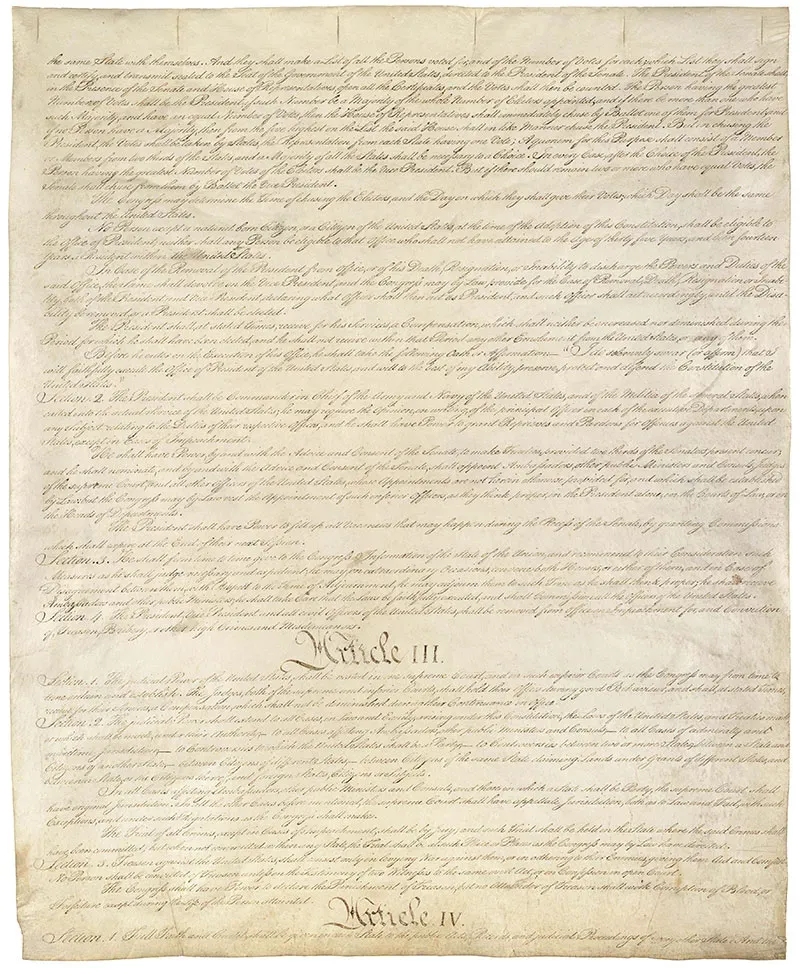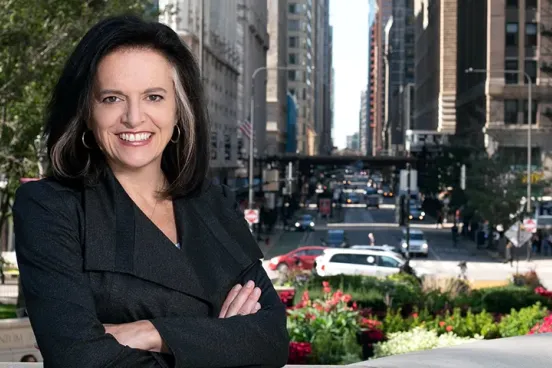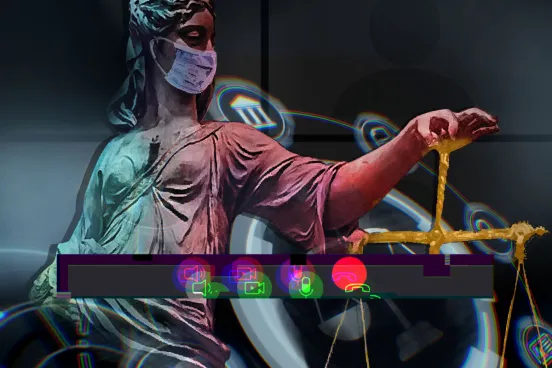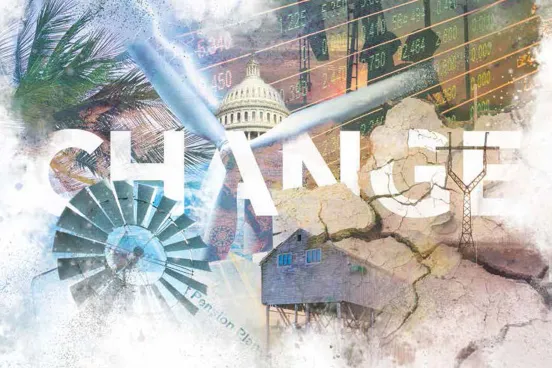Celebrating Justice
In fall 2021, the Michigan Innocence Clinic held an event in the Law Quad to celebrate four clients who were recently released from prison. The clients were joined by their friends and families, as well as by current and former students who were involved in securing their release. The event celebrated Tonia Miller, Walter Forbes, Kevin Harrington, and Eric Anderson. Miller, who was wrongfully convicted of murder in the 2003 death of her daughter, was released in April 2021 based on a new scientific understanding of medical issues related to so-called shaken baby syndrome (her baby is now believed to have died from pneumonia). Forbes was exonerated in 2020 after a key witness admitted to lying in the 1983 murder and arson trial. Harrington was released in 2020 after serving 17 years, following the clinic’s discovery of new evidence that exonerated Harrington and revealed the correct identity of the murderer. Anderson, wrongfully convicted of armed robbery, assault, and felony firearms charges, was exonerated in April 2019 when the true perpetrator confessed to committing the crime with someone other than Anderson. Another client, Juwan Deering, also attended the event; he was freed in September 2021 after a judge dismissed his 2006 murder conviction, citing police and prosecutor misconduct. Deering’s exoneration will be formally celebrated at a separate event for him and other new exonerees that will take place in 2022. The Michigan Innocence Clinic has assisted in the release of 29 clients since it was established in 2009.
Class of ’24 Sets a High Bar
7,693
Applications received during the 2020–2021 admissions cycle, the most in Law School history.
38.2%
Yield on offers to enroll, the highest ever. The previous high of 35% was set in 2019–2020.
171
Median LSAT score, the highest ever.
3.84
Median undergraduate GPA, the highest ever.
Back to Normal(ish)
Life and learning at the Law School has returned to something close to normal, and most in-person activities have resumed. Masks and certain other public health measures remain in place, but students, faculty, and staff are able to once again convene in the Law Quad—a welcome change of pace.
Zoom Court?
“According to the National Center for State Courts, this country’s first court-connected [online dispute resolution (ODR)] system did not launch until 2014, which is when the 14A District Court in Washtenaw County, Michigan, began piloting a platform to resolve certain traffic offenses. Its system was developed by Michigan-based Court Innovations Inc., which calls its ODR platform Matterhorn and was founded by University of Michigan law professor J.J. Prescott. Other courts started to slowly add ODR programs in the subsequent years, but there were still only 19 sites by the end of 2017, and most were in Michigan, according to an ABA Center for Innovation report released last year. Experts credit Court Innovations Inc. and forward-thinking court leaders for Michigan’s early leadership in ODR.”
The work of J.J. Prescott, the Henry King Ransom Professor of Law, was prominently featured in an ABA Journal article, “Lawyers and Judges Optional? Online dispute resolution promises to increase access to justice, but challenges remain.”
For more about the courts adapting to new technology, revisit last issue’s cover story on how the pandemic has helped motivate the judiciary to adopt new technology.
Honorable Alumnae
The Black Law Students Association hosted alumni and students in the Law Quad in celebration of two alumnae who assumed judgeships during the pandemic. The Hon. Erane Washington (pictured, left), ’93, was elected to the bench in Michigan’s 14B District Court, and the Hon. Miriam Perry (pictured, right), ’98, of the 15th District Court, was appointed by Michigan Governor Gretchen Whitmer.

The State of D.C.?
“The constitutionality of S.51 is straightforward. The admission clause of Article 4 Section 3 empowers Congress to admit new states, subject only to the limitation that Congress cannot unilaterally reconfigure any existing states. S.51 would not reconfigure any existing state; it would simply take American territory that is not currently a state and make it one. That’s exactly what the admission clause empowers Congress to do. Some say that this admission would require a constitutional amendment, but the Constitution doesn’t say that. The Constitution gives the power to admit new states to Congress, not jointly to Congress and state legislatures by way of constitutional amendment. . . It’s true, the founding generation didn’t intend Washington D.C. to be a state, but the founding generation also didn’t intend to create a situation in which 700,000 Americans would have no voting representation in Congress. For the founders, no principle was more central to the Constitution than representative government. In their time, there was no conflict between that principle and the non-state status of Washington D.C., because virtually nobody lived in Washington, D.C. But today, it is a conflict.”
Richard Primus, the Theodore J. St. Antoine Collegiate Professor of Law, during remote testimony before the U.S. Senate Committee on Homeland Security and Governmental Affairs. The hearing was convened to discuss S.51, a bill that “provides for admission into the United States of the state of Washington, Douglass Commonwealth, composed of most of the territory of the District of Columbia.” The bill would admit the state on equal footing with all other U.S. states.
Prof. MacKinnon in The NYT
“Children cannot be protected from sexual exploitation as long as pornography is protected and prostitution of adults is tolerated, because these are the same group of people at two points in time, sometimes no more than one day apart, sometimes at one and the same time—children presented as adults, adults presented as children.”
From “OnlyFans Is Not a Safe Place for ‘Sex Work’” by Catherine MacKinnon, the Elizabeth A. Long Professor of Law, published in the op-ed section of The New York Times. The piece was in response to an announcement from OnlyFans, a subscription-based social media platform, in which the company backtracked on a previously-announced policy that would have banned sexually explicit content.
Topping the Charts
“I have one last question about a subject that must keep you up at night. It’s been 20 long years now since Latvia won the Eurovision Song Contest. When will Latvia win it next, and what will you do to help bring it about?”
Daniel Halberstam, the Eric Stein Collegiate Professor of Law, saved his toughest question for last in discussion with Latvian President Egils Levits during a panel co-hosted by the Law School and the U-M Weiser Center for Europe and Eurasia. Geneviève Zubrzycki, U-M professor of sociology and director of the center, also participated in the wide ranging discussion about Latvia and related geopolitical issues. (For those wondering, the president suggested Latvian prospects were on the rise and that it was likely to win Eurovision within three years.)
Collin Christner, who completed his undergraduate studies at Stanford, addresses the group.
Professor Michael Steinberg hosted TA1LS, a new event in which public interest students come together to share their stories of coming to law school. In this photo, Collin Christner, who completed his undergraduate studies at Stanford, addresses the group.
Let the People Livestream
Emmy Parsons, ’14, appeared on CNN to discuss the trial of former Minneapolis police officer Derek Chauvin, who was accused and subsequently convicted in the murder of George Floyd. Parsons, an associate in the Washington, D.C., office of Ballard Sparh, represented a coalition of media organizations who were advocating for the trial to be broadcast live after it became clear that the pandemic would prevent the press and public from attending the trial in person. “[The public’s right to have access to court proceedings] comes from the First and Sixth Amendments to the Constitution,” she noted on CNN. “Both of those constitutional rights speak to the idea that the press and the public need to be in the courtroom, need to have access, so that they can see that justice is carried out and that defendants are treated fairly… We’re thrilled with how this played out.” At issue were court rules that only allow the use of cameras if both the defense and prosecution agree; in this case, the prosecution declined to assent. The presiding judge ultimately overruled the prosecution and issued an order that allowed for a live broadcast of the trial, citing the extraordinary circumstances of the pandemic and the high-profile nature of the case.
The Crease Court
The Crease Ball was an annual event at the Law School for much of the 20th century, and was once described in a 1958 issue of the (now defunct) student newspaper Res Gestae as “the focal event for the weekend traditionally given over to hell raising before finals.” This isn’t to suggest that there wasn’t a more altruistic purpose: proceeds went to an annual scholarship and to the Case Clubs, the predecessor to today’s clinical program. The event featured drinks and dancing, friendly ribbing of professors, and musical performances, including from the Psurfs, the Law School’s vocal group of the era.
The Law Quadrangle recently received a letter from a daughter of Samuel R. Searing, who graduated from the Law School with an LLB in 1948 after receiving his bachelor’s and master’s degrees from U-M in 1939 and 1940. “I thought you might be interested in this tongue-in-cheek invitation to the Crease Ball,” she writes. “It’s addressed to my mother, Dorothy Jean Meeks Searing, AB ’47. Sam and Jean were from the same hometown, Lockport, New York, but due to a five-year age difference, they didn’t meet until they were both students in Ann Arbor. Their studies were interrupted by World War II. At the conclusion of the war they married and returned to Michigan to finish their degrees.”
The “filing” was signed by U.R. Wonderful, Clerk of Crease Court, and it would appear the judge ruled in the complainant’s favor—Jean and Sam were married for 36 years, until Sam’s death in 1982.
What Would the Founders Do?
“Our conclusion is straightforward. The nondelegation doctrine has nothing to do with the Constitution as it was originally understood. You can be an originalist or you can be committed to the nondelegation doctrine. But you can’t be both.”
From “Delegation at the Founding,” a paper by Professor of Law Nicholas Bagley and Julian Mortenson, the James G. Phillipp Professor of Law, which was published in the Columbia Law Review.
Pro Bono Prowess
232
The number of students who participated in the Pro Bono Program during the 2020–2021 academic year, the highest number of participants in Law School history. Read more about the Pro Bono Program.






